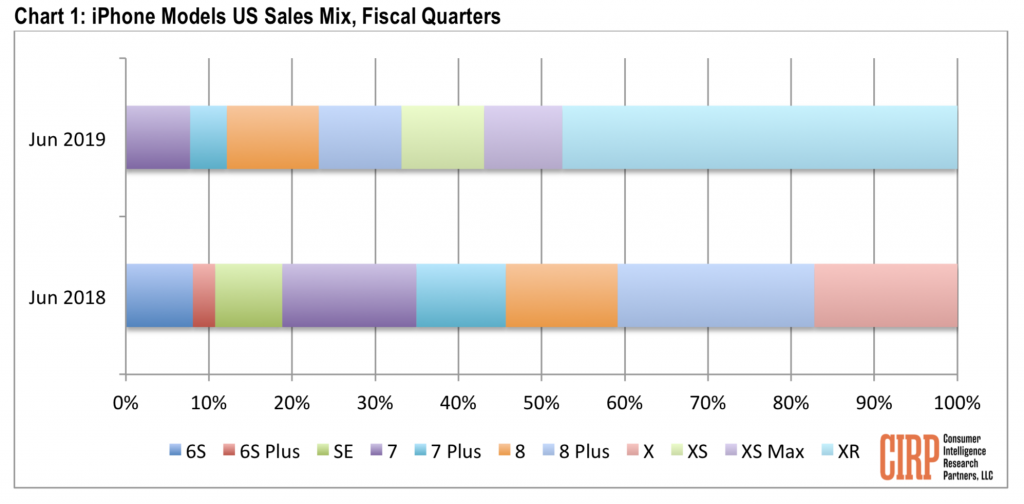iPhone XR стал самым продаваемым смартфоном Apple в третьем финансовом квартале 2019 года. Это следует из отчета, предоставленного Consumer Intelligence Research Partners (CIRP).

На модели iPhone XS, iPhone XS Max и iPhone XR пришлось 67% от общих продаж iPhone в США в третьем квартале 2019 года, причем только на iPhone XR пришлось 48%. Хотя осенью 2018 года многие эксперты отрасли прогнозировали слабые продажи iPhone XR и называли устройство «провальным».
По данным CIRP, доля продаж iPhone XR в этом квартале — самая высокая среди всех моделей iPhone с 2015 года.

Также аналитики отметили, что 47% покупателей iPhone приобрели платное хранилище в iCloud, а 3-6% — расширенную гарантию AppleCare. 35% покупателей iPhone в США используют Apple Music, а от 15% до 29% — Apple TV, Podcasts и Apple News.